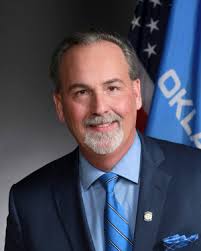Modernizing state government
Mike Seals - July 18, 2021 10:10 pm

By Sen. Bill Coleman
Among the more than 600 bills signed into law this session, you’ll find that we passed numerous measures to modernize government services and make them more efficient, accessible, and user-friendly.
One of our greatest accomplishments was a bipartisan civil service reform that eliminated the Merit Protection System, modernizing the state’s outdated employment process. The system hadn’t been updated in nearly 40 years, and it was time. This will allow for more flexibility within our state agencies regarding hiring, advancing, promoting, rewarding, and paying our nearly 36,000 state employees. It’s also going to help cut red tape and create a more efficient system. Previously, employees were listed as classified or unclassified—it was a complex system that was difficult to understand. This new system put all employees into a new civil service system under the Human Capital Management Division of the Office of Management and Enterprise Services (OMES). This bill, which goes into effect on Jan. 1, consolidates administrative Human Resources functions and gives state agencies more autonomy to manage their workforce. It also establishes an efficient, unbiased, and fair review process for objections to disciplinary actions and creates a confidential whistleblower program.
Next, we established a commission to study unifying our state’s three public safety agencies —Oklahoma State Bureau of Investigation (OSBI), the Oklahoma Bureau of Narcotics and Dangerous Drugs Control (OBNDDC), and the Department of Public Safety (DPS)–to increase efficiency and provide better public service. The commission will study how services can be improved through better collaboration, sharing of resources and unified high-level training to allow law enforcement members to move easily between the agencies. Our public safety agencies, like most of our state agencies, struggle with retention. By providing universal training, these men and women will have more career flexibility, which would help with retention and recruiting. The commission will study, evaluate, and make recommendations about combining the agencies into one as well as the best methods to ensure accountability within that one agency while also addressing public corruption. They must submit their recommendations to the Legislature and governor by Dec. 1.
Another change we made regarding state agencies was modifying the Administrative Procedures Act to restore legislative authority and push back against executive agencies legislating through rulemaking. Being that the Legislature is made up of 149 members elected by the citizens of Oklahoma, when we pass policies, it’s because it’s what the public wants. We need to ensure that agencies don’t skirt the will of the people through their rule-making processes.
One way we’re making government more efficient and user-friendly is through allowing the use of electronic titles and liens for vehicles, boats, trailers, and farm equipment. Thanks to legislation signed this session, we’re now the 25th state to allow this modern digital transformation. This is going to speed up business, save the state on administrative costs, and save people the hassle of keeping up with paper copies, making the entire process more convenient for consumers and businesses. The Oklahoma Tax Commission (OTC) will implement a program allowing for the electronic storage and filing of motor vehicle certificates of title and allow a lienholder to perfect, assign and release a lien on a motor vehicle digitally in lieu of submission and maintenance of paper documents. The OTC will also contract with vendors who have previous experience with electronic titling and the development of software to manage the program, which will allow for digital signatures. Under the new law, participation is voluntary. This new digital title and lien program will be up and running by July 1, 2022.
These are just some of the changes made to make our state agencies and services more efficient while providing cost-savings to taxpayers.
You can contact me by calling (405) 521-5581 or emailing [email protected].



